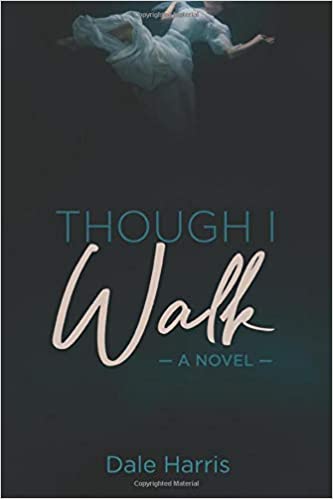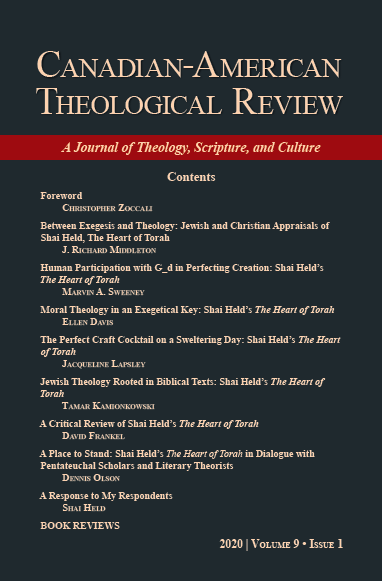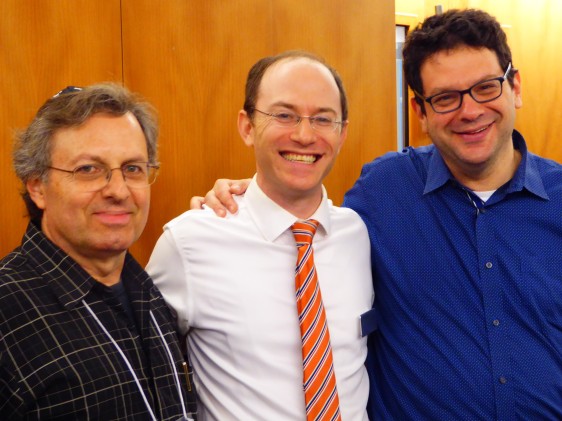A past student of mine, Canadian Dale Harris, has published his first, absolutely stunning, novel, called Though I Walk (Word Alive Press, 2021).
I was privileged to have Dale as a DMin student at Northeastern Seminary a few years ago. He wrote a wonderful paper for my course, which has subsequently been published in the Canadian-American Theological Review (2019).
Dale won the 2020 Braun Book Award for Fiction for his novel and received a publishing contract with Word Alive Press.
I was delighted to be asked to write an endorsement for the novel. This is what I said:
An exquisite tale of love, longing, and loss, set against the coastlines of Nova Scotia and the Aegean. Harris deftly intermingles Greek myth with the concreteness of love and the horrors of war. A stunning first novel.

Book Summary
The truths of the past are often the hardest to face.
When Grace Stewart’s fiancé Stephen leaves Halifax in 1937 to pursue his dream of becoming an archaeologist in Greece, neither of them expect that war will soon engulf the world, keeping them apart for nearly ten years. As Stephen gets caught up in the resistance movement on the island of Crete, Grace immerses herself in the war effort at home, held up by her faith and praying for his safe return.
Though her prayers are eventually answered and she and Stephen are finally reunited, he is never able to speak of the things he saw in Greece. After his sudden death in 1967, however, Grace discovers among his effects the journal he kept during that dark time… a journal which allows her to, at long last, piece together the unimaginable story of the man she thought she knew.
Amazon Review
Here is what a review on Amazon said about the novel:
5.0 out of 5 stars Outstanding novel! Reviewed in Canada on April 13, 2021
I rarely read novels. But this one drew me in immediately and kept me coming back for more, in spite of my extremely short attention span.
It is a great story of love, loss, loyalty and longing. The characters feel very much like real people.
The author “shows” you the story. He doesn’t just tell you what happens. You feel as if you are there with the characters. The author’s attention to detail is magnificent! Halifax in the 30s and 40s and Greece during WWII come to life vividly in their parts of the story. The war scenes strike me as realistic, but they are not overdone in a sensationalized way.
Faith or spirituality of various sorts shows up at different points in the tale, but there is nothing preachy!
The book is so full of sensitivity to loss and grief, to unfulfilled longing and hope that many good things end up “sticking” to you while you journey with the winsome characters.
We have already given a copy to friends.
Get one and enjoy it.
The book is available in paperback or ebook format on Amazon.
Dale Harris Biography

Dale Harris is an author, songwriter, blogger, and pastor, though not necessarily in that order. He taught high school English in St. Paul, Alberta before being called into fulltime ministry, and has served as a Free Methodist pastor in the city of Oshawa, Ontario since 2009. He holds a Bachelor of Education from the University of Alberta (Edmonton, AB), a Master of Divinity from Briercrest Seminary (Caronport, SK), and a Doctor of Ministry from Northeastern Seminary (Rochester, NY).
Dale writes regularly about life, faith, and spirituality on his blog terra incognita, and he produces Three Minute Theology, a YouTube channel dedicated to communicating the deep truths of Christian theology through short, creative whiteboard videos. He is a prolific songwriter and publishes his music on Spotify and iTunes under the artist name D. Michael Harris. Through his writing Dale loves to explore the mysterious ways God is present to us in all aspects and every season of our lives.
Here is an article about the writing of the book on the Free Methodist Church website.




